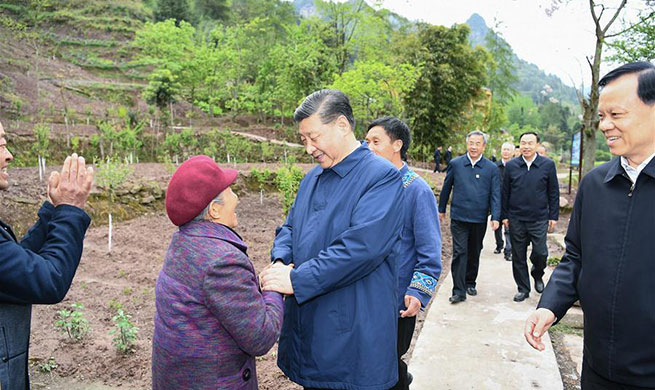BEIJING, April 20 (Xinhua) -- The Belt and Road Initiative (BRI) will be an efficient way to address the imbalance in global infrastructure development, according to U.S. engineering firm AECOM.
Under the BRI, financing platforms including the Asian Infrastructure Investment Bank and the Silk Road Fund have emerged, which will help narrow the development gap, said Ian Chung, chief executive of AECOM for Greater China.
"The BRI is an opportunity for all. It is open, inclusive, and will bring economic development to the next level," Chung told Xinhua.
According to Chung, countries and regions of different development phases can all benefit from the BRI, especially in infrastructure.
For developing economies, such as some in Africa, the BRI will significantly improve local infrastructure connectivity and boost economic growth, Chung said.
For fast-growing economies such as some in Southeast Asia, Chinese firms could share their experience in high efficiency and green construction via the BRI to meet the rising demand for sustainable infrastructure, he said.
As for many other developed countries, the demand for infrastructure still abounds, as many existing facilities are becoming aged, he added.
The BRI has opened plenty of opportunities for AECOM, as the company has been partnering with Chinese firms on many overseas projects, offering consulting services on design, local regulations, environmental and safety standards.
"Chinese firms excel in construction and financing, while we share a competitive edge in project design, knowledge of local regulations, procedures as well as culture. It's a win-win for all of us," Chung said.
Seeing business opportunities from the BRI, the company set up a new department in its Beijing office three years ago to work with Chinese firms on BRI projects.
The firm just opened its new offices in Chengdu and Changsha, following the set-up of its China headquarters in Shanghai last year, another sign that shows the company's confidence in China's development, Chung said.
"I am very optimistic that we will have more value-added cooperation with Chinese firms under the BRI," Chung said.

















